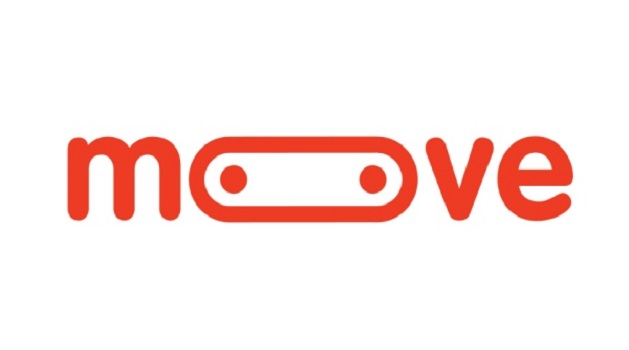General News
Mobile Industry Can Generate $565Bn by Unlocking Right 5G Spectrum – GSMA

Unlocking spectrum for the mobile industry to deliver innovative 5G services across different industry sectors could add $565 billion to global GDP and $152 billion in tax revenue from 2020 to 2034, according to a new report launched today by the GSMA.
Next-generation 5G services will improve access to healthcare, education and mobility whilst reducing pollution and increasing safety.
However, these outcomes rely on government support for the identification of sufficient millimetre wave (mmWave) spectrum for the mobile industry at the next ITU World Radiocommunication Conference in 2019 (WRC-19).
The report, “Socio-Economic Benefits of 5G Services Provided in mmWave Bands”, is the first to examine and quantify the impact of mmWave spectrum on the overall contribution of 5G networks to society. mmWave spectrum will carry the highest capacity 5G services.
It has the ideal characteristics to support very high data transfer rates and ultra-reliable, low latency capabilities, which will support new use cases and deliver the benefits of 5G to consumers and businesses around the world.
Brett Tarnutzer, Head of Spectrum, GSMA, said “The global mobile ecosystem knows how to make spectrum work to deliver a better future.
“Mobile operators have a history of maximising the impact of our spectrum resources and no one else has done more to transform spectrum allocations into services that are changing people’s lives.
“Planning spectrum is essential to enable the highest 5G performance and government backing for mmWave mobile spectrum at WRC-19 will unlock the greatest value from 5G deployments for their citizens.
“More than 5 billion people already rely on the mobile ecosystem to deliver services that are integral to their daily lives and fundamental to the economic sustainability of the communities they live in. 5G can offer more benefits and a whole new range of services to even more people, but this will not be possible without access to this vital spectrum.”
New Possibilities for Consumers and Industry
mmWave 5G will not only provide consumers with ultra-fast mobile broadband services including immersive entertainment, but will stimulate a host of applications that will enable citizens and businesses to do tomorrow what they can’t do today.
These innovations will include enhanced remote healthcare and education, industrial automation, virtual and augmented reality, and many others.
In healthcare, improved telemedicine including tactile internet capabilities, better preventative medicine using always-on remote sensors and wearables, and remote surgery and ‘smart’ instruments will only be made possible because of the speed and latency capabilities enabled by mmWave spectrum.
Next-generation robots, remote object manipulation (controlling machines with precision at distance), drones and other real-time control applications in digitised industrial centres are expected to increase efficiency, reduce costs and improve safety as well as lead to innovations in products and processes.
In autonomous transport, mmWave 5G will enable driverless vehicles to communicate with each other, the cloud and the physical environment continuously to create highly efficient public transport networks.
These and many other innovative use cases are expected to deliver 25 per cent of the overall value created by 5G in the future.
Global growth from mmWave
The early lead already being established in 5G in the Asia Pacific and Americas regions are expected to generate the greatest share of GDP attributed to mmWave 5G, at $212 billion and $190 billion respectively. Europe is forecast to have the highest percentage of GDP growth attributable to mmWave of any region, with 2.9 per cent.
However, the advantages are not restricted to early-adopting mobile markets and, as the rest of the world deploys 5G in subsequent years, economies of scale derived from spectrum harmonisation will stimulate even faster growth. Regions such as Sub-Saharan Africa, Central Asia and Latin America and the Caribbean could see growth in GDP contribution from mmWave 5G applications of over 65 per cent per year from 2026 until 2034.
“It is critical for governments to recognise the importance of the mmWave aspects of 5G when making decisions at the upcoming WRC-19.
“Making the right decisions now on spectrum will be vital to stimulating the rapid growth of economies, especially in developing markets, in the coming decade,” added the GSMA’s Brett Tarnutzer.
“mmWave spectrum has the capacity to support the innovative services expected from the highest performance of 5G, and only the mobile ecosystem has the technical expertise and track record in collaboration to deliver them at a price acceptable to consumers and businesses around the world.”
New mmWave bands for mobile are being discussed at WRC-19, and the GSMA recommends supporting the 26 GHz, 40 GHz and 66-71 GHz bands for mobile.
Global harmonisation of these bands at WRC-19 will create the greatest economies of scale and make broadband more affordable across the world.
Outside the WRC-19 process, 28 GHz is also emerging as an important mmWave band for realising the ultra-high-speed vision for 5G. Commercial services using this band have already been launched in the US and it will also be used for mmWave 5G in countries such as South Korea, Japan, India and Canada.
The report, “Socio-Economic Benefits of 5G Services Provided in mmWave Bands”, which includes details of 5G use cases, value and GDP contribution by sector and geography, can be found here.
The study was conducted by TMG, a consulting firm specialising in the information and communication technologies sector, on behalf of the GSMA.
General News
Cybervergent Selected as World Economic Forum’s 2025 Technology Pioneer Company

In affirmation of its global standing, Cybervergent, a Pan-African technology company that leverages artificial intelligence to transform how organisations manage risk, governance, privacy, and cybersecurity, has been selected as one of the World Economic Forum’s (WEF) Technology Pioneers for 2025—a global cohort spotlighting companies transforming industries through breakthrough technologies and responsible innovation.

The WEF, an international organisation committed to improving the state of the world through public-private collaboration, brings together global leaders to shape economic, technological, and societal agendas. Cybervergent now joins this global community.
The company is recognized for its innovative approach to building digital trust, reimagining how organisations manage cybersecurity, risk, privacy and governance.
Commenting on the company’s milestone, Adetokunbo Omotosho, CEO of Cybervergent, said, “I am honoured that Cybervergent has been named a Technology Pioneer by the World Economic Forum. This is more than an accolade — it’s a validation of our commitment to redefining cybersecurity, privacy, and risk management to build true digital trust.
“What makes this recognition even more meaningful is the fact that Cybervergent demonstrates innovation in AI and infrastructure can emerge from any region, challenging conventional perceptions.”
Some past recipients of the Technology Pioneer recognition, including Google, Spotify, and Airbnb have gone on to fundamentally reshape global industries.
As a member of the 2025 Technology Pioneers community, Cybervergent will be contributing to discussions shaping cybersecurity, AI, and cyber resilience across industries and the global digital economy.
General News
Moove Plans to Raise $1.2Bn Debt Round for US Autonomous Vehicle Expansion

Moove, an African mobility fintech startup, is on a quest to secure a $1.2 billion debt financing round to support the rollout of a fleet of autonomous vehicles.

This is in partnership with Alphabet Inc.’s Waymo in the United States, according to a Bloomberg report citing sources familiar with the matter.
The startup has since attracted backing, including from Uber Technologies Inc., and entered a strategic partnership with Waymo in December 2024 to provide financing for self-driving cars.
Ladi Delano, co-founder of Moove, noted that the company has a solid financial track record.
“Moove has built strong relationships with some of the world’s leading lenders. We have also fully repaid our first-ever debt facilities, which signals our maturity and marks a key milestone that demonstrates the strength of our platform as we enter the next phase of global autonomous-vehicle infrastructure deployment,” he said.
The round is reportedly oversubscribed, with strong participation from private credit firms and banks.
Waymo has also not made any official statement regarding the funding round. While final details are expected to be concluded in the coming weeks, the deal will mark a significant milestone for the firm as it ramps up its global ambitions.
Founded in 2020 by Nigerian entrepreneurs, Ladi Delano and Jide Odunsi, Moove began by providing vehicle financing for ride-hailing drivers in Africa’s largest cities.
General News
Firm Explores the Evolution of AI-powered Ransomware with Password-gated Capabilities

Kaspersky experts have revealed the inner workings of FunkSec — a ransomware group that illustrates the future of mass cybercrime: AI-powered, multifunctional, highly adaptive and operating on volume with ransoms as low as $10,000 to maximise profits.

Kaspersky’s Global Research and Analysis Team (GReAT) constantly monitors the ransomware threat landscape, where attacks continue to rise. According to the company’s latest State of Ransomware report, the share of users affected by ransomware attacks worldwide increased to 0.44% from 2023 to 2024, up by 0.02 percentage points.
While this percentage may appear modest compared to other cyber threats, it reflects the fact that attackers typically prioritise high-value targets rather than mass distribution, making each incident potentially devastating. Within this evolving landscape, FunkSec has emerged as a particularly concerning threat.
Active for less than a year since its emergence in late 2024, FunkSec has quickly surpassed many established actors by targeting government, technology, finance and education sectors. What sets FunkSec apart is its sophisticated technical architecture and AI-assisted development.
The group packages full-scale encryption and aggressive data exfiltration into a single Rust-based executable, capable of disabling over 50 processes on victim machines and equipped with self-cleanup features to evade defenses.
Beyond its core ransomware functionality, FunkSec has expanded its toolkit to include a password generator and a basic DDoS tool — both showing clear signs of code synthesis using large language models (LLMs).
FunkSec’s approach reflects the evolving landscape of mass cybercrime, combining advanced tools and tactics. Kaspersky’s GReAT experts highlight the key features that define their operations:
Password-Controlled functionality
GReAT experts discovered that FunkSec ransomware features a unique password-based mechanism that controls its operation modes. Without a password, the malware performs basic file encryption, while providing a password activates a more aggressive data exfiltration process in addition to encryption to steal sensitive data.
FunkSec packs full-scale encryption, local exfiltration and self-cleanup into a single Rust binary—without a side-loader or a companion script. That level of consolidation is uncommon and gives affiliates a plug-and-play tool they can deploy almost anywhere.
Use of AI in development
Code analysis shows that FunkSec is actively using generative artificial intelligence to create its tools. Many parts of the code seem to be automatically generated rather than manually written. Signs of this generic placeholder comments (such as “placeholder for actual check”) and technical inconsistencies, like commands for different operating systems that don’t align properly. Additionally, the presence of declared but unused functions—such as modules included upfront but never utilised — reflects how large language models combine multiple code snippets without pruning redundant elements.
“More and more, we see cybercriminals leveraging AI to develop malicious tools. Generative AI lowers barriers and accelerates malware creation, enabling cybercriminals to adapt their tactics faster.
By reducing the entry threshold, AI allows even less experienced attackers to quickly develop sophisticated malware at scale,” comments Marc Rivero, Lead Security Researcher at Kaspersky’s GReAT.
High-volume, low-ransom strategy
FunkSec demands unusually low ransom payments, sometimes as little as $10,000, and pairs this with the sale of stolen data at discounted prices to third parties. This strategy appears designed to enable a high volume of attacks, helping the group quickly establish its reputation within the cybercriminal underground. Unlike traditional ransomware groups that seek million-dollar ransoms, FunkSec employs a high-frequency, low-cost model — further underscoring its use of AI to streamline and scale operations.
Expands beyond ransomware
FunkSec has expanded its capabilities beyond the ransomware binary. Its dark leak site (DLS) hosts additional tools, including a Python-based password generator designed to support brute-force and password-spraying attacks, as well as a basic DDoS tool.
Advanced evasion
FunkSec employs advanced evasion techniques to avoid detection and complicate forensic analysis. The ransomware is capable of stopping over 50 processes and services to ensure thorough encryption of targeted files. Additionally, it includes a fallback mechanism to execute certain commands even if the user launching FunkSec lacks sufficient privileges.

 Telecom3 days ago
Telecom3 days agoMTN Nigeria Debuts Game-Changing CPaaS Platform at NextNow Forum

 E-Financial2 days ago
E-Financial2 days agoCourt Affirms NIBSS Authority to Manage BVN

 News3 days ago
News3 days agoAMCON Confirms ₦100Bn Sale of Ibadan DisCo Amid Legal Disputes

 E-Business3 days ago
E-Business3 days agoDomain of Deception as Attackers Deploy Spyware Under Guise of Legal Threats

 E-Financial3 days ago
E-Financial3 days agoNAICOM Issues New Licenses to SanlamAllianz Life, General Insurance

 E-Financial3 days ago
E-Financial3 days agoGTCO to Become First Nigerian Bank to List on London Stock Exchange

 Telecom2 days ago
Telecom2 days agoMTN, 9mobile Commence Ground-breaking National Infrastructure Partnership

 Broadcasting3 days ago
Broadcasting3 days agoIFC, AfDB Collaborate with EbonyLife Media to Explore Supporting the African Film Industry to Drive Job Creation


























